#and i say in my life bc there are famous cis men whose work i adore
Explore tagged Tumblr posts
Text
i have never met a white cis man in my life who has made interesting art or who has had worthwhile opinions on film. i'm thinking back to every time i have been in a film space and they were consistently the least pleasant people to be around. it was like a numbers game: how many films have you seen? how many films do you watch a week? the one time i volunteered at a film festival, the guy i worked with quizzed me on the oscars. they just don't have the minds of artists to me idk
#i am just really in my hating cis (white) men bag right now LMAO like they are empty ppl sorry#'people'#and i say in my life bc there are famous cis men whose work i adore#like i'm a huge cronenhead i love the way he views the world#well. he thinks he's cis anyway. (joke)#but for the most part cis (white) dudes have to prove their humanity to me atp 😭#and if one tells me to watch his film i expect 9/10 it's gonna be pretentious dogshit#if they even actually MAKE films#which these types of dudes usually dont
2 notes
·
View notes
Text
Chapter Six : L AS IN LESBIAN

THE STORY OF SAPPHO OF LESBOS
Sappho (630–570 BC) was a Greek poetess from the island of Lesbos, located in the northeastern Aegan Sea. Sappho (or as some would call her “The Tenth Muse” or “The Poetess”) was known for her lyric poetry, usually written to be sung while accompanied by a lyre. Over the centuries, most of Sappho’s poetry was lost, except for one complete poem :
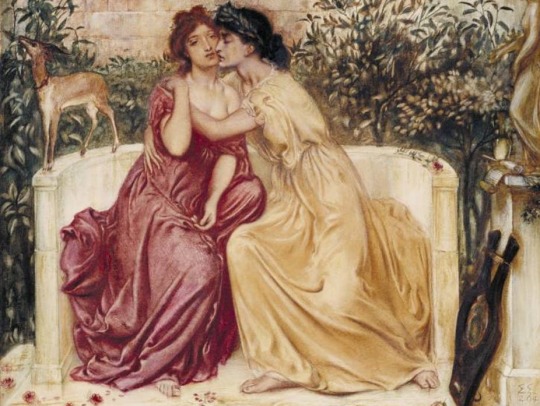
ODE TO APHRODITE Iridescent-throned Aphrodite, deathless Child of Zeus, wile-weaver, I now implore you, Don’t — I beg you, Lady — with pains and torments Crush down my spirit,
But before if ever you’ve heard my pleadings Then return, as once when you left your father’s Golden house; you yoked to your shining car your Wing-whirring sparrows
Skimming down the paths of the sky’s bright ether On they brought you over the earth’s black bosom, Swiftly — then you stood with a sudden brilliance, Goddess, before me;
Deathless face alight with your smile, you asked me What I suffered, who was my cause of anguish, What would ease the pain of my frantic mind, and Why had I called you
To my side: “And whom should Persuasion summon Here, to soothe the sting of your passion this time? Who is now abusing you, Sappho? Who is Treating you cruelly?
Now she runs away, but she’ll soon pursue you; Gifts she now rejects — soon enough she’ll give them; Now she doesn’t love you, but soon her heart will Burn, though unwilling.
Come to me once more, and abate my torment; Take the bitter care from my mind, and give me All I long for; Lady, in all my battles Fight as my comrade.
Though not much is known of Sappho’s life, her work speaks of a great admiration and fascination for the beauty of women. Fragmented biography written on papyrus states that Sappho was accused by some of being “irregular in her ways and a woman-lover” but it does not prove anything at all. It cannot be denied that the remaining 650 lines from her body of work portray homoerotic feelings. The conclusion of this is nobody knows Sappho’s life. That didn’t stop them from originated the word Lesbian from her place of origin.
ETY-HOMO-LOGY
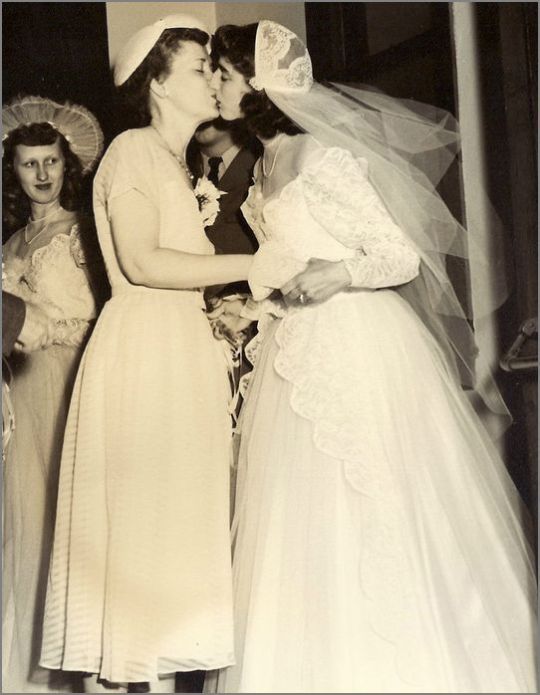
The term Lesbianism, to describe erotic relations between women, had been documented as early as 1870. By 1890, the term Lesbian was used in a medical dictionary. Synonyms from the early 20th century include invert (which seems to be the equivalent of our “butch” term), homosexual and… sapphist.
Interestingly, far less was written by medical professionals about lesbianism as it was viewed as a lesser problem than male homosexuality. In some cases, it was not acknowledged to exist at all. We could talk about the works of sexologists Ebing (Germany) and Ellis (UK) but they believed a woman’s attraction to another woman could be either medically reversed or vanish after the woman had experiences marriage and a “practical life”. They also indicated that homosexual men has behaviors that should not be considered a criminal vice. So.. Yeah ? Misogyny wins ?
LESBIANISM AS AN IDENTITY
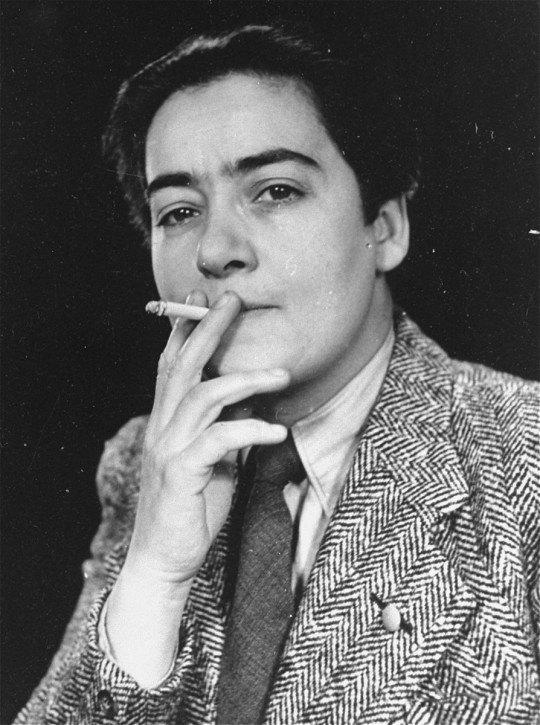
As a cis gay man with no rights to give a personal opinion to what is and isn’t considered lesbianism, please acknowledge I’m only reporting previous theories and opinions that were stated by more or less qualified people than me.
It seems that the act of sexual relationships between two women is still up for debate as to be defined as lesbianism. According to feminist writer Naomi McCormick, Lesbianism was mostly constructed by men, whose primary indicator of lesbian sexual orientation is sexual experience with other women. As I believe sexuality is a spectrum and not a series of boxes to check, I would tend to agree with that statement. But I will not give more of an opinion on the subject. She also stated that emotional, mental and ideological connections between women are as important or more so than the genital. As the definition of lesbianism was clearly unfocused depending on who you were talking to, and the rise of feminism in the second part of the 20th century, women felt safer claiming to be more sexually adventurous, allowing them to be feel more accepted by the male gaze. In the 1980s, a significant movement rejected the sexualization of lesbianism which became part of a heated controversy called the feminist sex wars. The movement is built to counter the idea that women is long-term relationships with other women were having less sexual contact that heterosexual or homosexual male couples, calling this “Lesbian Bed Death”.

The idea is that a woman that does not identify her sexual feelings toward persons of her sex as lesbianism and does not engage if long-term emotional attachment will keep on being sexually viable in the eyes of society. Using the word “lesbianism” as a death sentence on your sex life, putting you right in the category of asexual beings. Misogyny wins again ?
In direct consequence with the male gaze and the construction of the word lesbianism by male minds, homosexual women from western culture often adopted lesbianism as an identity itself. As most people are taught that heterosexuality is an innate quality in all people, women who realize her romantic and sexual attraction to other women go through an ‘existential crisis’. The identity of a lesbian, challenging what society had offered in stereotypes about homosexuals and learning to function within a homosexual subculture. From that perspective came the stereotypes that were naturally reused in the media as to make the whole thing comprehensible to heterosexuals with no capacity for nuances.
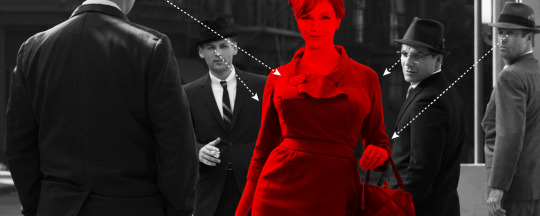
STERE-HO-TYPES

First, let’s talk about what other dumb people can think about a lesbian : 1. Lesbians just haven’t been with the right guy yet — There is no right guy. 2. Men molested them as children and turned them into lesbians — sexual identity cannot be changed to any events whatsoever. And why do you have to associate that to tragedy ? 3. In every lesbian couple, one has to be the man — Men are useless most of the time. You don’t need your idea of a man. 4. Lesbian hate men — I don’t think they do. But do men hate lesbians ? The idea of, no. Them ? Probably a very emasculating thought. 5. It’s not real sex if there’s no penis — you clearly never had good oral sex in your life. 6. All lesbians use strap-ons/No lesbians use strap-ons — there are contradictory reports. Do that I say the fuck do you care ? It’s not your concern!
We also have the two main categories of lesbians that are absolutely and definitely real and nothing else because otherwise, how are we gonna understand those people ?

If you are a lesbian (and we highly doubt that cause you haven’t met the right guy yet), you are a butch or a femme. As everything had to be either masculine or feminine in gender, sex or identity studies, even lesbians adopted that way of thinking in the last century. A US study from the 90s showed that “95% of lesbians are familiar with butch/femme code and can rate themselves or others in terms of those codes”. Those two clichés of what a lesbian should be also created debates inside the community, subculture and the feminist movement. For some, the sexual and romantic association of butch and femme was a replication of heterosexual relations while other commentators argue that, while it resonates with heterosexual patterns of relations, butch-femme simultaneously challenges it. A lot of theoretical talk for something people don’t seem to totally understand.
NO BI, BI, BI
Lesbians in western cultures generally create an identity that parallels those built on ethnicity : they have a shared history and subculture (as gay man do but more focused), a similar experience with discrimination (homophobic AND misogynistic) which has caused many of them to reject heterosexual principles. It created a point of contention with the ideas of a bisexual woman and a lesbian who once had sexual relationships with men. Lesbians who have never had sex with men may be referred to as “gold star lesbians” while those who have may face ridicule and rejection from others. Bisexual women also face, more so than in heterosexual relationships, identity challenges with regard to defining what it means to be interested in women. I had a conversation the other day with someone who happens to be a gay woman about what she was looking for in a girl. I scanned for people I might know and talked about a friend of mine, single as well. It seemed that the bisexuality of my friend was a point of no return, as she did not want to engage with someone “who didn’t know what she wanted”. As I’m going to cover the B in LGBT in another article real soon, I won’t get to far in that particular area today. Though I need to insist right now (and yes, this is a fact AND an opinion) : Bisexuality is not a half-way stop to homosexuality. There is not transition. Saying you’re bisexual while you are actually gay is something a 15 year-old confused teenager would say out of fear of being rejected. A grown-ass woman does not have that fear. She knows exactly who she is just as you do. B as in Bisexual… coming soon.
LESBIAN REPRESENTATION
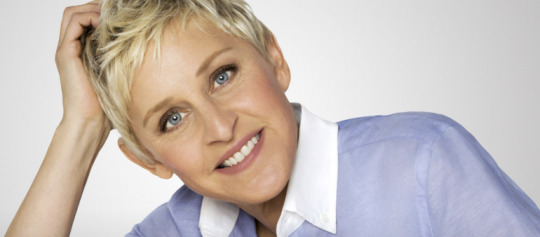
If I say Lesbian, you say Ellen ! Lesbian! Ellen ! Lesbian ! Ellen ! As I’m also covering Ellen in the future, I won’t get too much into that right now. Yes, Ellen Degeneres is probably the most famous (and possibly richest) lesbian in the world. And though she broke barriers, she was not the first.
Selma Lagerlöf, first woman to be awarded the Nobel Prize in Literature. Jane Adams, first woman to be awarded the Nobel Peace Prize. Julia Morgan, first woman admitted to the Ecole des Beaux-Arts. Lili Elbe, first identified recipient of gender confirmation surgery (Yes, transgender woman can also be lesbians as sexuality and gender are two different things). Eleanor Roosevelt, first lady of the United States (still disputed by many though). Marguerite Yourcenar, first woman elected to the Académie Française. Interesting to notice that while I was researching those names, many of them (Joséphine Baker, Frida Kahlo) were bisexual women, showing that even now, bisexuality is not accepted as face value and just another name of lesbianism for women.
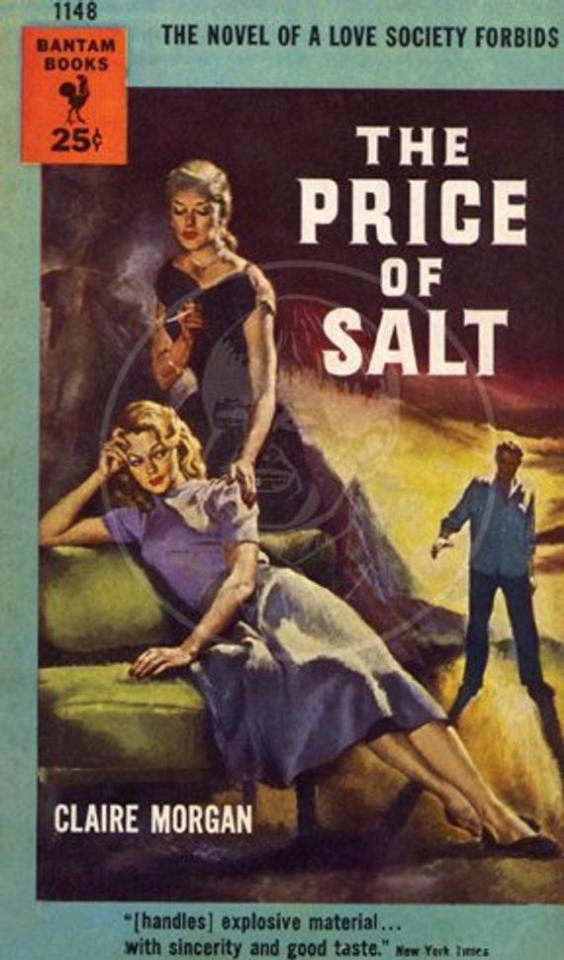
In literature, The Price of Salt by Patricia Highsmith (1951) comes to mind, depicting the first-ever “happy ending” for a lesbian couple. The release of the book was so scandalous at the time the author had to use a pseudonym. Following the Stonewall Riots, lesbian themes multiplied in more diverse and complex themes, though mostly through essays on feminism and sexuality. Important lesbian writers to read are Rita Mae Brown and Audre Lorde, to name a few.
In cinema, openly lesbian content in mainstream films began appearing during the 1990s, exploring sympathetic lesbian characters. By 2000, some films portrayed characters beyond issues of sexual orientation, reflecting a wider need to see lesbianism as more than sexual desire. Unfortunately, most mainstream films with lesbian protagonists are directed by heterosexual male directors. 2001’s Mulholland Drive put two women in a grotesque exposure of their sexual desires. 2013’s Palme d’Or winner Blue is the Warmest Color (La Vie d’Adèle Partie 1&2) gives us the most explosively graphic lesbian sex scenes in recent memory, though it was received by some lesbian communities as exploitative and offensive. Summer of Love (2004) is a great indie movie with delicate use of lesbian themes and characters but it was directed by Pawel Pawlikowski.
In television, lesbians were largely ignored for quite a while. Not until 1962 were there mentioned in reports concerning female homosexuality. On scripted shows, the word “lesbian” was never heard of, instead using codes like “villain” or “neurotic”. In the 80s, L.A. Law included a lesbian relationship in one of their storylines, causing outrage. Sci-Fi shows of the 90s implied more than stated that characters were gay. It really only changed with Ellen’s 1997 Puppy Episode (more on that later, I told you). After that milestone, Soap operas included a couple of lesbians here and there, cable shows tried it too. The L Word was created by Showtime as a response to the network’s own Queer as Folk. Though not a great show in terms of writing and pacing, it remains an important landmark in lesbian history and is getting rebooting in the next few months.

I do believe the bigger, brighter and thoughtful representation of a lesbian romance was in Buffy the Vampire Slayer. But even then, the network did not want the two lesbian characters to kiss on screen (they had to wait over a year after the met for depicting the smallest kiss in the face of grief). In our golden age of television, we have the likes of Orange is the New Black, The Fosters, characters on Grey’s Anatomy, American Horror Story, Orphan Black. Not enough, but a start.
Overall, the lack of representation in the media justified the accumulation of basic lesbian clichés put together by society and the community itself.
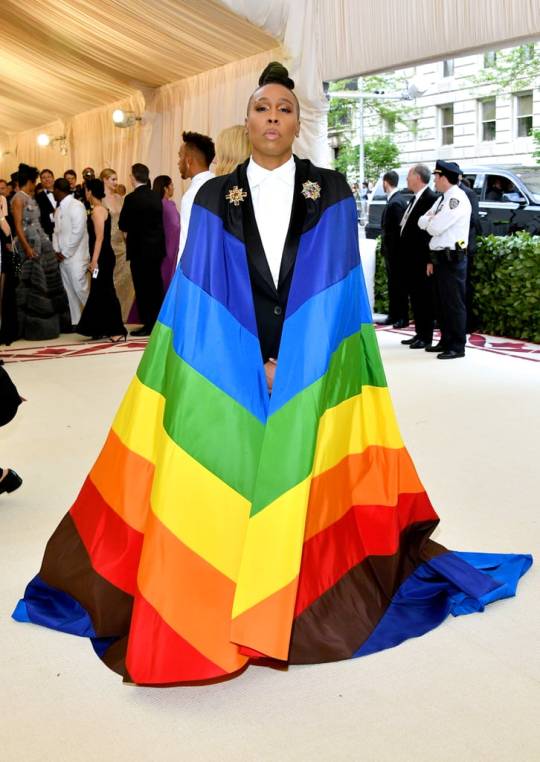
IN CONCLUSION
Is lesbianism an identity ? If not, were lesbians force to assume this as their primary identity as a way to get ground and recognition ? That L is important. They have it rough. But not as ruff as Black Lesbians.
0 notes